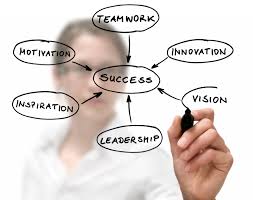Choose the letter for each question you answer "Yes" to learn your preferred personality according to the Myers-Briggs Type Inventory.
1. E = Working with others energize me or tire me.
I = I like quiet time with nothing to do, or do I try to fill time with action.
2. S = I learn what is going on mainly from my senses (sight, sound, touch, taste, smell)
N = I use my intuition (my sixth sense) to decide what is going on around me.
3. F = I form conclusions and make decisions by thinking things through logically.
T = I allow my good or bad feelings to influence my decisions.
4. J = I like my life to be structured with deadlines and rules.
P = I like a life where things may change quickly and I have to be flexible.
The following information describes some of the characteristics of each MBTI personality. None of the types represent good or bad personalities. They simply show how we are different from each other.
Personality Preference
Common Qualities of Personality Types
(I) Introverted Type
Inner directed; thinks before acting; wants private time to analyze information
(E) Extroverted Type
Outer directed; acts before thinking; social; talks things out
(S) Sensing Type
Focuses on the now, sees what is; wants the practical
(N) Intuitive Type
Focuses on the future, sees what might be; wants to talk about possibilities
(T) Thinking Type
Values objective analysis; is logical; has a long-term view; wants facts and figures
(F) Feeling Type
Values personal relationships; interested in what effect ideas will have on people; subjective, personal, immediate view
(J) Judging Type
Makes decisions about what to do and when; likes to know where she stands
(P) Perceiving Type
Keeps options open; spontaneous, flexible; discovers life as he goes along
Action: Write the four letters of your possible Type, for example, ISTJ. Review the chart for the meaning of the letters in your Type. Pick out characteristics you believe describe you.
1. E = Working with others energize me or tire me.
I = I like quiet time with nothing to do, or do I try to fill time with action.
2. S = I learn what is going on mainly from my senses (sight, sound, touch, taste, smell)
N = I use my intuition (my sixth sense) to decide what is going on around me.
3. F = I form conclusions and make decisions by thinking things through logically.
T = I allow my good or bad feelings to influence my decisions.
4. J = I like my life to be structured with deadlines and rules.
P = I like a life where things may change quickly and I have to be flexible.
The following information describes some of the characteristics of each MBTI personality. None of the types represent good or bad personalities. They simply show how we are different from each other.
Personality Preference
Common Qualities of Personality Types
(I) Introverted Type
Inner directed; thinks before acting; wants private time to analyze information
(E) Extroverted Type
Outer directed; acts before thinking; social; talks things out
(S) Sensing Type
Focuses on the now, sees what is; wants the practical
(N) Intuitive Type
Focuses on the future, sees what might be; wants to talk about possibilities
(T) Thinking Type
Values objective analysis; is logical; has a long-term view; wants facts and figures
(F) Feeling Type
Values personal relationships; interested in what effect ideas will have on people; subjective, personal, immediate view
(J) Judging Type
Makes decisions about what to do and when; likes to know where she stands
(P) Perceiving Type
Keeps options open; spontaneous, flexible; discovers life as he goes along
Action: Write the four letters of your possible Type, for example, ISTJ. Review the chart for the meaning of the letters in your Type. Pick out characteristics you believe describe you.



 RSS Feed
RSS Feed